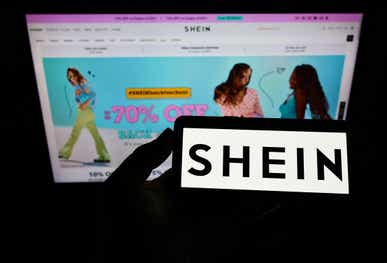Shein IPO: New Valuation Targeted but Doubt Remains

Shein IPO: New Valuation Targeted but Doubt Remains
Headquartered in Singapore, Shein is now one of the world’s largest fashion companies, known for its cheap but trendy apparel
- Shein’s IPO remains in doubt as the company targets a new valuation.
- A U.S. probe and market volatility concern investors.
- 2024 now looks like the earliest date we will see public offering.
An e-commerce fast-fashion company backed by Sequoia China and other wealth funds, Shein was founded in 2008. But the company became a fashion titan during the COVID-19 pandemic. Headquartered in Singapore, Shein is now one of the world’s largest fashion companies, known for its cheap but trendy apparel.
The trend of fast fashion has been around for a while, pioneered in the United States by companies like H&M Group (HM-B.ST) and privately held Forever 21. But the last few years saw shoppers turn to online sales, which bolstered Shein into the industry giant that it is today.
Last year, a funding round valued Shein at $100 billion, making it one of the world’s highest-valued startup companies. However, a volatile marketplace and recent controversies have plagued the company’s plans to go public, as well as dragging its value lower.
Shein IPO: the latest developments leave investors waiting
Shein is keeping investors on edge as the company continues to pursue an initial public offering (IPO) in the United States. While a definitive timeline remains uncertain amid a quickly changing market landscape and recent IPO flops, the valuation of the IPO has most recently been put at a price tag of about $90 billion, according to a Bloomberg report citing people familiar with the matter.
According to the latest rumors, Shein’s IPO plans remain a mystery to the public, with deliberations ongoing. The biggest roadblock is a potential investigation by Congress into its rumored practices of sourcing some of its materials from the Xinjiang region of China, where alleged labor camps composed of Uyghurs, an ethnic group of Muslims, are operated by the Chinese government.
When will Shein do an IPO?
Shein and its current investors are interested in going public, but if allegations against the company are proven correct, it would kneecap those plans, as it would violate U.S. laws concerning forced labor. This is likely, in part, keeping the IPO plans on hold.
A 2024 or later launch date is the most likely scenario. The congressional probe remains the biggest wildcard. If the investigation finds that Shein did indeed violate laws that ban products made from forced labor in China’s Xinjiang region, its goods would be banned from the United States.
There is also scrutiny of a tax loophole that Shein, as well as other retailers, exploit to receive tax exemptions on its imports into the U.S., known as de minimis. That loophole allows goods under $800 to be tax-exempt and to avoid higher oversight requirements from U.S. customs.
Thomas Westwater, a tastylive financial writer and analyst, has eight years of markets and trading experience. @fxwestwater
For live daily programming, market news and commentary, visit tastylive or the YouTube channels tastylive (for options traders), and tastyliveTrending for stocks, futures, forex & macro.
Trade with a better broker, open a tastytrade account today. tastylive, Inc. and tastytrade, Inc. are separate but affiliated companies.
Options involve risk and are not suitable for all investors. Please read Characteristics and Risks of Standardized Options before deciding to invest in options.